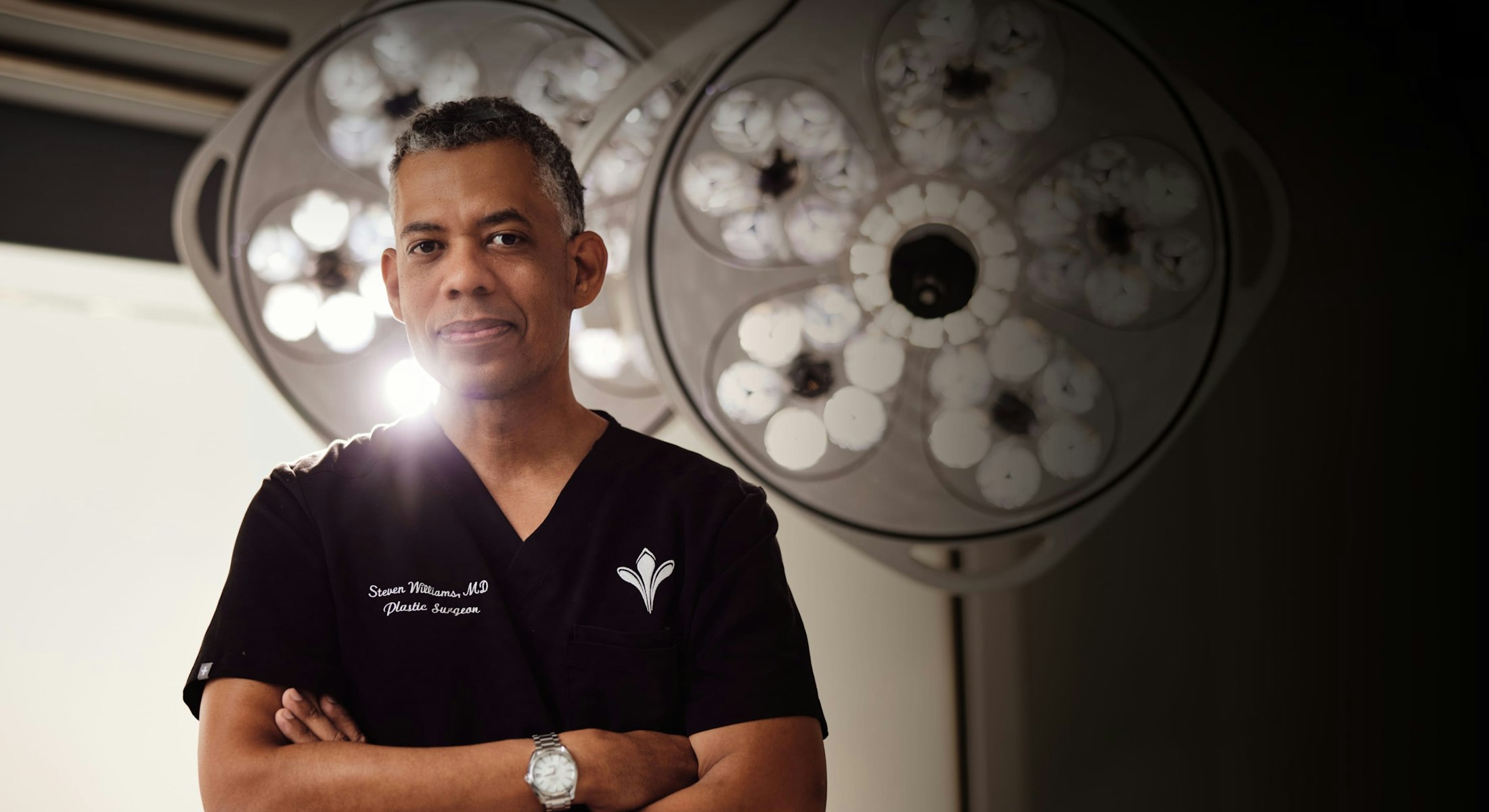Facelift Rancho Cucamonga: Turn Back the Clock with Advanced Anti-Aging Solutions
Facelift Rancho Cucamonga: Turn Back the Clock with Advanced Anti-Aging Solutions
Blog Article
Examining the Mental and Social Aspects That Drive Individuals to Think About Cosmetic Surgical Procedure as a way of Renovation
The choice to go after plastic surgery often prolongs past plain aesthetics, intertwining with emotional and social characteristics that merit complete assessment. Variables such as self-esteem, pervasive societal charm criteria, and the prevalent impact of social media assemble to shape private motivations for medical enhancement. As these influences come to be progressively prominent, understanding the underlying psychological and cultural contexts is vital. What stays to be discovered is the extensive influence these variables have not only on individuality yet likewise on broader social norms and values bordering appeal and acceptance.
The Duty of Self-confidence
Self-esteem dramatically affects an individual's choice to seek cosmetic surgical procedure. Individuals with reduced self-worth commonly view themselves in an adverse light, bring about feelings of insufficiency concerning their physical look. This negative self-perception can drive them to look for medical interventions as an approach of enhancing their self-image. The desire for renovation in one's look is often linked to an idea that such changes will boost their overall self-respect and confidence.

Eventually, the role of self-worth in the decision-making procedure regarding cosmetic surgical procedure highlights the complicated interplay between body picture, individual satisfaction, and mental health and wellness. Recognizing this partnership is essential for healthcare professionals to guarantee that people are making notified choices rooted in practical expectations and psychological wellness.
Social Appeal Specifications
Influenced by pervasive media portrayals and cultural narratives, societal charm criteria play a critical duty in forming individuals' assumptions of their own bodies. These requirements are typically characterized by an idealized form of elegance that emphasizes qualities such as youthful vigor, symmetry, and slimness. As these ideals are bolstered via various channels, consisting of tv, film, and advertising, individuals frequently internalize these messages, resulting in dissatisfaction with their natural look.
The implications of these societal standards expand beyond aesthetic choices; they can affect self-worth, psychological health and wellness, and social relationships. People who perceive themselves as disappointing these requirements might experience feelings of insufficiency, motivating a need for plastic surgery as a way of attaining social approval. This quest is often sustained by the idea that adjusting to these ideals will improve not just physical look yet also social standing and personal satisfaction.

Impact of Social Media Site
The impact of societal appeal criteria is further intensified by the increase of social media platforms, where curated pictures and idyllic representations of beauty are ubiquitous. Users are frequently exposed to filtered and edited photos, which often portray unattainable physical qualities. This direct exposure grows a society of contrast, leading individuals to evaluate their own look versus these often unrealistic benchmarks.
Social network influencers and celebs regularly advertise aesthetic procedures, stabilizing the concept that medical improvements are a viable methods for attaining social ideals (plastic surgery rancho cucamonga). The exposure of these enhancements can develop an assumption that undertaking cosmetic surgery is a typical method, thus influencing people to consider comparable treatments as a pathway to improved self-esteem go now and social approval
In addition, the interactive see this site nature of social networks enables for immediate feedback with likes and comments, better strengthening the need to adapt to popular elegance requirements. Such communications can intensify feelings of insufficiency and drive people toward cosmetic surgical treatment as a means of getting validation. Inevitably, social networks plays a critical function in forming understandings of beauty, which substantially affects the decision-making processes bordering cosmetic surgical procedure.

Social Viewpoints on Look
Across various cultures, assumptions of look are deeply rooted in historic, social, and financial contexts, shaping people' views on charm and charm. In lots of cultures, appearance serves as a considerable pen of identity, influencing social condition, expert opportunities, and individual relationships. For example, in some societies, light skin is commonly connected with wealth and privilege, while others might idealize darker complexion as icons of toughness and authenticity.
Furthermore, conventional appeal requirements are commonly bolstered through cultural stories, media representations, and family members affects, causing varying ideals throughout different regions (plastic surgery rancho cucamonga). In Western societies, the emphasis on youth and physical fitness frequently drives individuals towards aesthetic enhancement, while in certain Eastern cultures, even more subtle modifications straightened with typical aesthetics might be chosen
Globalization and the spreading of digital media have actually even more complicated these characteristics, creating a hybridization of appeal ideals that transcends geographical borders. As people progressively navigate these cultural stories, the stress to satisfy particular look requirements can lead to the desire for plastic surgery, mirroring a complex interplay of individual aspirations and cultural worths. Understanding these social perspectives is vital in attending to the motivations behind plastic surgery considerations.
Emotional Effects of Cosmetic Surgery
Numerous people looking for cosmetic surgery record experiencing extensive psychological effects that can substantially modify their self-perception and emotional health - plastic surgery rancho cucamonga. The wish for physical enhancement usually stems from underlying issues such as reduced self-esteem, body dysmorphic condition, or social stress relating to charm standards. For some, the immediate post-operative stage can result in a momentary increase in self-confidence and fulfillment with their look, promoting a feeling of empowerment
However, these positive sensations might not be enduring. Study indicates that while some people experience boosted self-confidence, others may deal with intense anxiety or clinical depression if their assumptions are not met. This discrepancy can emerge from impractical perfects continued by media representation redirected here and social narratives bordering beauty.
In addition, the psychological implications of plastic surgery extend past the individual. Relationships with friends and family may be strained as social dynamics change, leading to feelings of seclusion or alienation. Ultimately, the mental influences of cosmetic surgical treatment are intricate and diverse, calling for cautious consideration by both prospective individuals and medical care service providers to make sure informed decision-making and reasonable assumptions.
Verdict
Finally, the decision to seek cosmetic surgery is considerably affected by a mix of self-esteem concerns, societal elegance requirements, and social point of views on look. The prevalent reach of social media further aggravates these pressures, promoting unrealistic ideals that individuals commonly make every effort to achieve. Comprehending these emotional and social factors is essential for resolving the inspirations behind plastic surgery, highlighting the demand for a more nuanced discussion surrounding beauty and self-acceptance in modern society.
The decision to go after cosmetic surgical procedure commonly extends past mere aesthetics, intertwining with psychological and social dynamics that warrant detailed examination. Eventually, social media plays a critical function in shaping perceptions of elegance, which significantly impacts the decision-making procedures bordering cosmetic surgical procedure.
As people increasingly navigate these social stories, the pressure to adjust to certain appearance criteria can lead to the need for cosmetic surgery, showing a complicated interplay of individual goals and social worths.In conclusion, the choice to seek cosmetic surgical procedure is significantly affected by a combination of self-confidence concerns, social charm criteria, and social viewpoints on appearance. Understanding these mental and social elements is essential for attending to the motivations behind cosmetic surgical procedure, highlighting the need for an extra nuanced conversation bordering elegance and self-acceptance in contemporary culture.
Report this page